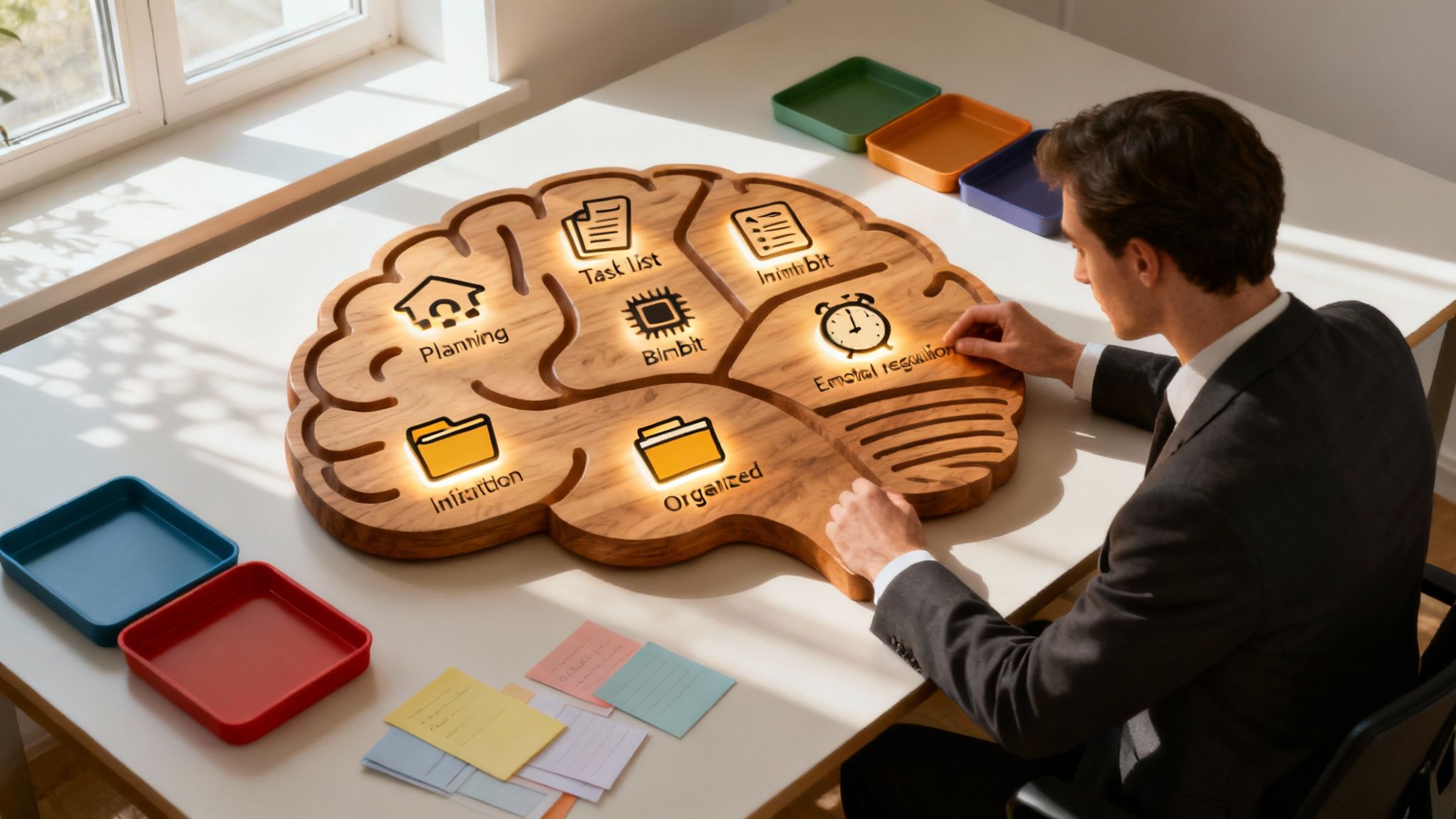When most of us imagine “disability accommodations,” we picture the ramps outside a building or the elevator in our office. However, this is just the tip of the iceberg when it comes to workplace accommodations. To have a truly inclusive workplace, we have to be inclusive of neurological differences as well!
ADHD is one such neurological difference.
Adults with ADHD often struggle with things like:
- Paying attention
- Concentrating on tasks
- Time management
- Executive functioning
- Emotional regulation
…to name a few. That’s why ADHD is an important hurdle to address for employees who may be struggling.
While ADHD is challenging, it can also be a source of creativity, spontaneity, ambition, and passion.
In fact, people with ADHD are an enormous asset to the places that they work, as long as they are given the tools they need to succeed. So, how can we become more accommodating for the neurodiverse community? Here are a few suggestions on how to make your workplace more inclusive.
Too long; didn't read
• The Americans with Disabilities Act (ADA) protects individuals against workplace discrimination and includes cognitive disabilities such as ADHD, aphasia, and dyslexia, as well as physical disabilities.
• Reasonable accommodations for ADHD may include job restructuring, working from home, modified work schedules, and more.
• Asking for accommodations may feel intimidating, but you can prepare by making a list of accommodations you need and how providing them could benefit your employer.
ADHD accommodations at work: 5 things to consider
1. Consider your job’s environment
While open offices can feel spacious and encourage collaboration, it can be a nightmare for anyone who struggles with concentration or focus. A few ways to help minimize distractions include:
- Having a separate and quiet workspace
- Using noise-canceling headphones
- Using office dividers (if applicable)
- Scheduling guaranteed uninterrupted work time
Remote work is also a great option for people with ADHD — as long as they’re able to self-regulate for work tasks and responsibilities.
For employees struggling with hyperactivity (i.e. ADHDers with either the hyperactive-impulsive subtype or the combined subtype), it can also be helpful to create an environment where movement is encouraged. This can include walking meetings, frequent stretch breaks, and even designated spaces for light exercise.
2. Take a team approach
When people with ADHD have minimal external support, they often check out. This is because they tend to be extrinsically motivated, meaning they’re most motivated when they’re being held accountable by a deadline or another person.
A great way to create this sense of accountability is to encourage mentorship or offer access to an ADHD coach. A mentor or coach can help create the structures that keep people with ADHD on-task.
3. Keep your expectations reasonable and clear
Because of challenges with executive functioning — which includes task initiation, prioritization, and completion — people with ADHD need their job expectations to be clear and accessible.
For someone with ADHD to be focused, their role needs to be as focused as possible, too. Their job responsibilities should be listed in order of priority to help with triaging, and marginal/non-essential tasks should be limited.
It can be helpful to co-create a job description together (or edit the existing one!), and be open to feedback on both the scope and expectations of the job.
4. Look for tech-friendly solutions
Investing in tools that help people with ADHD is crucial to their success. A spreadsheet or project management tool can be the difference between success and struggle in a role! Apps for organization, keeping time, and planning can be enormously helpful, especially if a mentor or manager can help set up those tools and integrate them.
ADHD management apps like Inflow can also help in learning the skills needed to thrive with ADHD.
5. When in doubt, ask questions
One of the best ways to support an employee with ADHD is to remain curious.
Asking questions, collaborating, and problem-solving together not only helps improve work performance, but it creates an environment where struggles and setbacks can be openly discussed. If you’re unsure of how to support an employee with ADHD, just ask! Chances are, they may have some awareness of tools and accommodations that have been helpful in the past.
Advocate for yourself in the workplace
Remember, we are the experts on our own experiences! Empathy can go a long way in creating a more accessible workplace. Listening to us, above all else, is one of the best things you can do.
Interested in providing accommodations for people with ADHD? The Job Accommodation Network has numerous resources and additional suggestions for employers.
“When we can honestly accept our differences, we are open to new ways of doing things. We can begin to think outside the box and find simple solutions that work specifically for us. This then begins the process of growth and change.” -The Inflow App | Success with ADHD module, day 1
Asking for work accommodations can be scary. The Inflow app can help! With learning modules on topics like Success with ADHD, Anxiety, and How to Explain Your ADHD, you can gain skills to better advocate for yourself. Get started with Inflow today!








